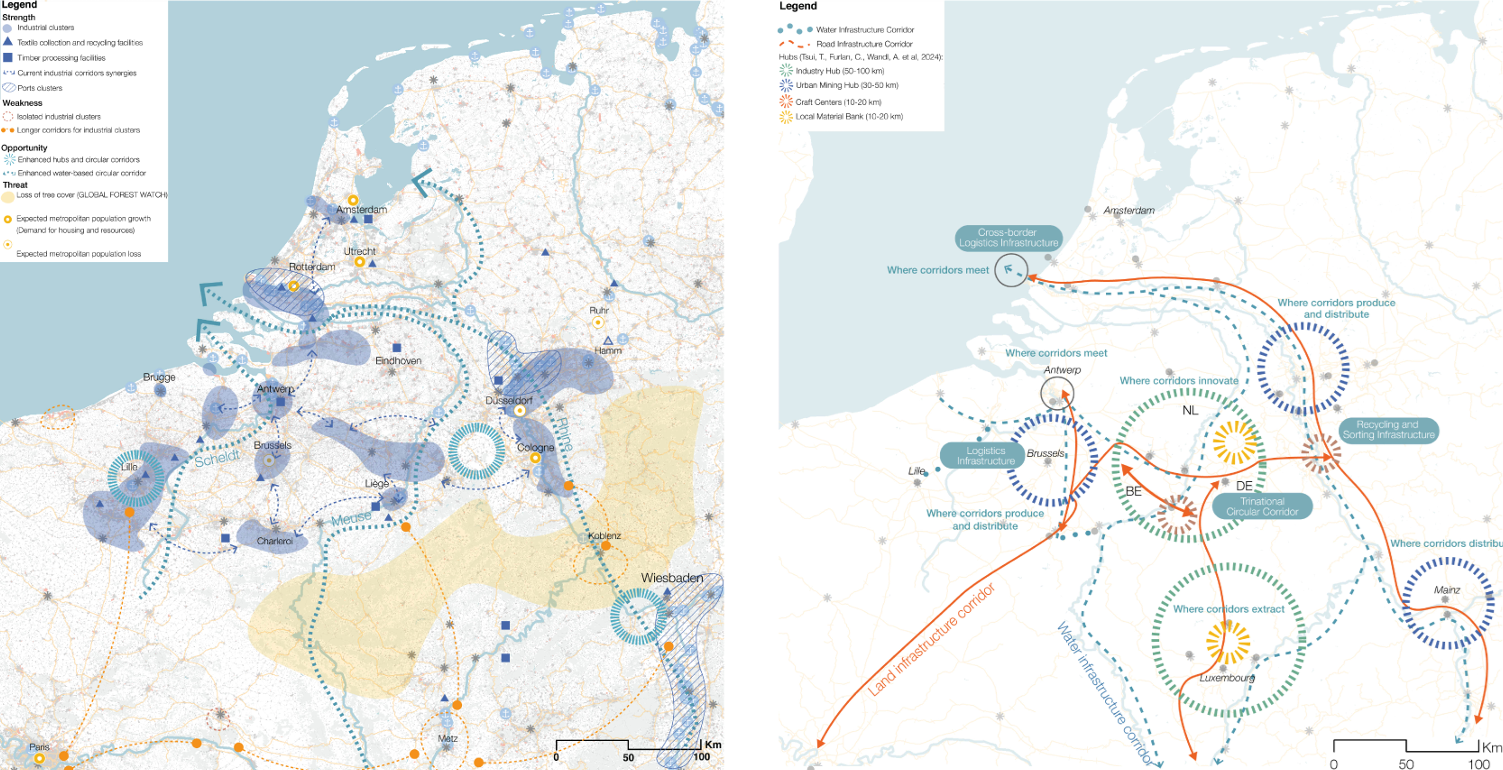Eurodelta Corridors: Circular Strategies for Resilient Living
Tiles and Fabric
Students: Laura Caroline Barbosa e Silva
Tutors: Christa Reicher, Fabio Bayro Kaiser
In an era of shifting resource dynamics and fragmented logistics, the Eurodelta region is emerging as a testing ground for rethinking how infrastructure can promote circularity. Eurodelta Corridors explores how timber and textiles—two versatile yet frequently overlooked materials—can be incorporated into construction practices via spatially coordinated corridors. These corridors range from waterways and rail lines to last-mile urban logistics, connecting production, reuse and innovation hubs across borders. Drawing on spatial data analysis, expert interviews and fieldwork, the project proposes a system comprising material banks, circular depots and shared processing centres located along the North Sea–Rhine–Mediterranean corridor. Timber provides carbon storage and renewable structures, while recycled textiles offer insulation and reduce waste, together forming the material backbone of a vision for low-carbon construction. However, logistics are important: the project found that co-locating reuse and processing sites with ports and multimodal hubs was essential in lowering transport emissions and increasing effectiveness. The project also highlights the need for governance support, including digital traceability tools and cross-border incentives. The result is a pragmatic yet inspiring vision of the Eurodelta—not just as a channel for goods, but as an active circulatory system for sustainable living. This vision calls for a rethink of infrastructure, viewing it not as a backdrop, but as the scaffolding of tomorrow’s circular cities.
